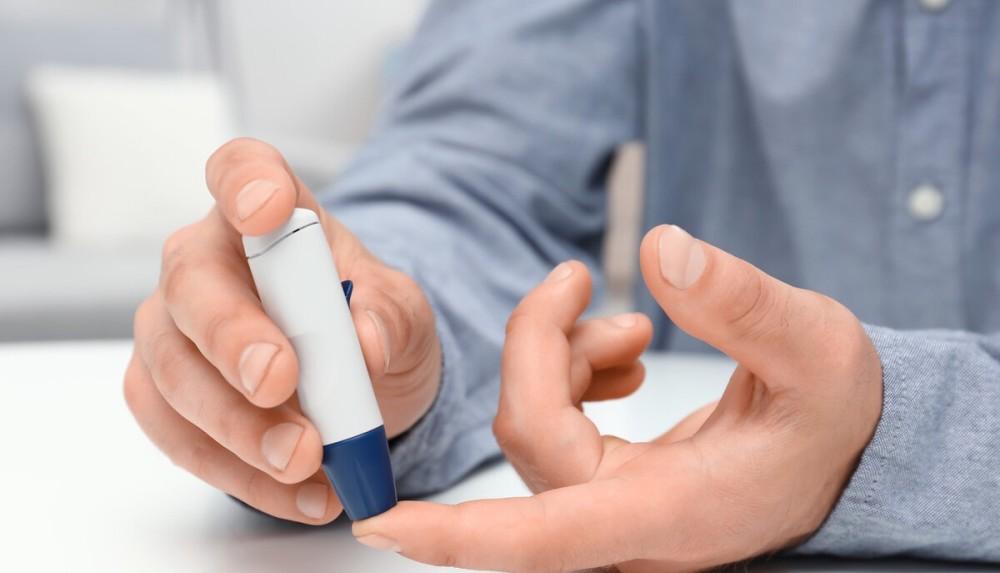In response to a diabetic consultation, Hanako instructed him to pay attention to the prevention of hypoglycemia. He was a little puzzled, diabetes is not a blood sugar rise, why should we beware of low blood sugar? Huazi told him that for diabetics, the occasional high blood sugar problem is not a big problem, but if there is low blood sugar, it can lead to serious problems and even life-threatening.
Hanako has a friend, the family's uncle is because of low blood sugar caused brain damage, lived in the ICU for two weeks, and eventually became a "vegetative person".

First, the harm of hypoglycemia is very large
The normal blood sugar of the human body is between 3.9 and 6.1 mmol/L, and the blood sugar of healthy people is lower than 2.8 mmol/L, or the blood sugar of diabetics is lower than 3.9 mmol/L, which is hypoglycemia. The human brain relies on glucose for energy, and when hypoglycemia occurs, the brain does not get enough energy supply and will "crash".
Initially there will be symptoms such as panic, hand shaking, sweating, etc., with the degree of aggravation, there may be mania, delusion, abnormal behavior, confusion and other symptoms of brain dysfunction, after which a coma will occur, if you do not get effective treatment within 6 hours, the brain will occur irreversible edema, necrosis.
In one case, a nurse injected her boyfriend with insulin while he was sleeping, which eventually led to his boyfriend's death, taking advantage of the harm caused by low blood sugar to the human body.
Second, common causes of hypoglycemia
1, fasting drinking: alcohol can prevent the human body liver glycogen decomposition and gluconeogenesis reaction, drinking on an empty stomach is easy to cause hypoglycemia, making people more likely to get drunk. Therefore, before drinking, eat some staple foods "bottom", do not drink on an empty stomach.
2. Reactive hypoglycemia: obesity, prediabetes, there will be abnormal insulin secretion, if you eat too much carb food, it may stimulate excessive insulin secretion, causing reactive hypoglycemia 2 to 3 hours after meals.
3. Tumor: tumors occur in the pancreas, which will stimulate excessive insulin secretion, resulting in repeated symptoms of hypoglycemia.
4. Diabetes: Diabetics need to use hypoglycemic drugs, diet control and regular exercise to control blood sugar, and hypoglycemia is prone to occur when overdose, untimely meals or excessive exercise.
Third, we must pay attention to beware of panic and cold sweat
When hypoglycemia occurs, it is initially manifested as panic, cold sweat, and shaking hands, and sugary foods should be quickly supplemented. Diabetics are best to carry candy and sugary drinks with them and consume them immediately when symptoms of hypoglycemia occur.
It should be noted that if there are acarbose, voglipose and other α glucosidase inhibitors in hypoglycemic drugs, it will inhibit the decomposition of polysaccharides and sucrose into glucose, and eating ordinary sugary foods cannot be saved. After the onset of hypoglycemia, direct glucose supplementation is required.
Diabetics who take lore drugs at the same time should pay attention to because lore drugs have the effect of lowering heart rate, which may mask the symptoms of panic when hypoglycemia occurs, so that there is no precursor symptom of hypoglycemia, and it is possible to directly enter brain dysfunction and coma.
If a diabetic person has developed a coma, it is not recommended to force feeding or watering, as it is possible to enter the trachea and cause suffocation. At this time, it is necessary to quickly dial the 120 emergency number and let the doctor rescue through intravenous infusion. It is recommended that diabetics carry a contact card with them, indicating the disease and contact number, so as to facilitate rescue in the event of an accident.
To sum up, people with diabetes should pay attention to the threat of low blood sugar while controlling blood sugar. Usually, blood glucose should be monitored, not less than 3.9mmol/L. If you have panic or cold sweat, beware of hypoglycemia. Do not arbitrarily change the dosage of medication, eat on time, and do not exercise excessively. When you have doubts about medication, you should consult with a doctor or pharmacist, I am a pharmacist Huazi, welcome to follow me and share more health knowledge.